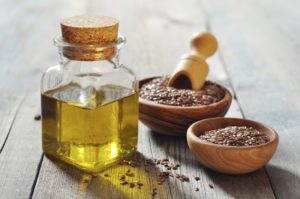Cholesterol is necessary part of the human body. It provides the essential building blocks necessary for hormones and cells to be balanced and function correctly. But cholesterol can be a bit tricky, cholesterol can be “good” but all too often it’s stigmatized as being “bad,” when in actuality the kind of cholesterol being referred to makes all the difference. Low-Density Lipoprotein Cholesterol (or LDL) is the kind often referred to as bad cholesterol which may be connected to numerous health issues over time, chiefly plaque build-up in the arteries that can lead to heart attack and stroke.

Oils derived from seeds are the subject of a new study delving into their correlation with cholesterol.
LDL cholesterol, fortunately, can actually be lowered through diet however. One of the main switches to make is opting for unsaturated fats over saturated fats. Unsaturated fats are the kinds found in avocados, nuts, olives, etc. Saturated fats are found in animal protein, fast foods, processed foods, etc. Perhaps a much more difficult way to gauge how what you consume is effecting your cholesterol involves not just the food you eat, but the oil you are using to prepare that food.
There are a variety of oils out there which are used for dressings, as ingredients and nearly universally in meal prep as pan coatings and flavoring. A recent study from the German Institute of Human Nutrition examined data specifically pertaining to the effects of different cooking oils on blood lipid. According to the study’s findings, seed-based oils had the healthiest effect on cholesterol.
Here were some of the top performers:
- Sunflower Oil This oil, pressed from sunflower seeds, contains more polyunsaturated fats than any other vegetable-derived oil. It also manages to pack in a parade of powerful fatty acids, including: stearic, palmitic, oleic and linoleic acids along with Vitamin E, selenium, lecithin and carotenoids. These function as potent anti-oxidants, help to maintain lower cholesterol levels, prevent infections and help support heart health.
- Rapeseed Oil This oil, derived from rapeseeds, is related to the cabbage family. It is more commonly known by a portmanteau Canola Oil, which is a combination of the words ‘Canada’ (the world’s largest producer of said oil) and a variation of the word ‘oil.’ It’s been shown to benefit heart health, lower cholesterol and even control blood sugar.
- Flaxseed Oil This oil, which comes from a fiber crop called flax, has a wide array of benefits. It’s also enjoyed a booming surge in popularity in recent years, with many people becoming aware of its health benefits. It’s been credited with keeping cholesterol levels low and benefiting conditions like anxiety, arthritis, ADHD and even chronic dry eyes.
- Safflower Oil, This oil is derived from the safflower plant. It’s beneficial for cholesterol levels, soothing inflammation and a variety of other health problems ranging from arthritis to diabetes. Safflower oil is flavorless so it’s best to use it for cooking.
These are just a few of the best seed-derived oils to be using more of, however, one of the main, most important switches to make if you want to lower your LDL is to stop cooking with butter, lard or any animal-derived fats. Other vegetable oils like olive oil didn’t score as high on the study for lowering bad cholesterol, but it’s still a better option than butter.
By implementing a few of these changes in your daily life and in your meal preparation practices, you can successfully get a grip on your cholesterol levels just by moderately changing up your food and the way you cook it.
Do you want a customized approach to diet and nutrition to help improve your health conditions, including high cholesterol? Have a look at my nutrition page for more information.


